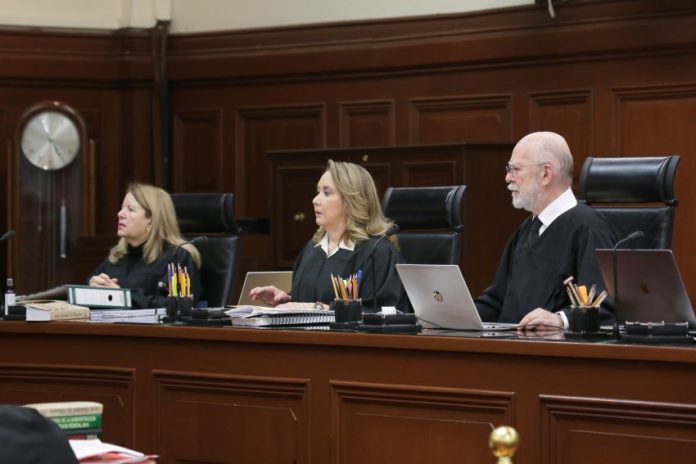The Supreme Court (SCJN) on Tuesday rejected a proposal to invalidate key parts of the recently enacted judicial reform, setting the stage for the direct election of more than 1,000 judges next year.
After opposition political parties filed a lawsuit against the controversial judicial reform, Justice Juan Luis González Alcántara Carrancá drew up a proposal under which only Supreme Court justices and electoral magistrates would be elected and all other judges would continue to be appointed based on qualifications and experience.
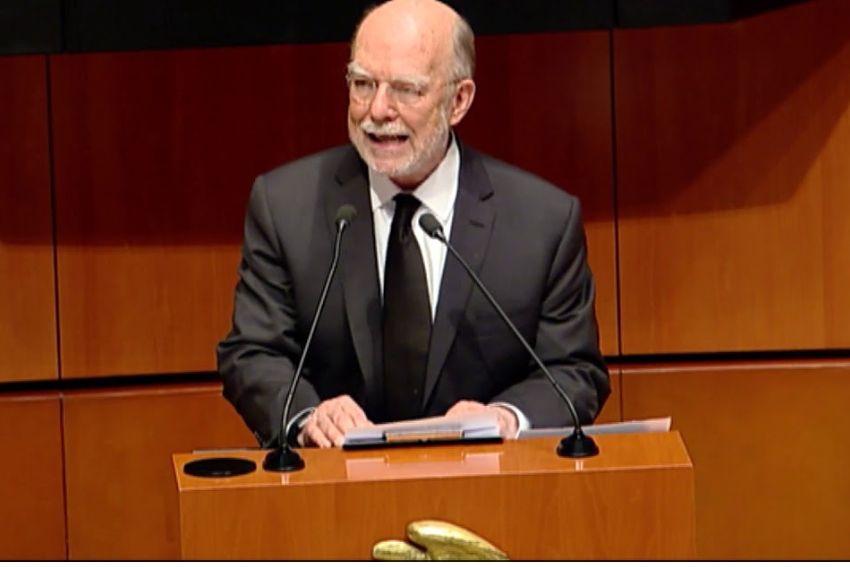
After hours of debate, seven of 11 justices voted in favor of the proposal, one vote short of the special majority required to pass it.
A subsequent attempt by Chief Justice Norma Piña to lower the number of votes required to approve the proposal to six failed.
Three justices who are widely regarded as supportive of the federal government’s agenda voted against González’s draft ruling, as did Justice Alberto Pérez Dayán.
Pérez is not in favor of the judicial reform, but argued that the SCJN doesn’t have the authority to review and approve changes to the constitution, and that political parties didn’t have the right to challenge the judicial overhaul approved by Congress in September and promulgated by former president Andrés Manuel López Obrador two weeks before he left office.
“I am in no way unaware of the consequences the constitutional reform in question will have on … legal certainty, … the division of powers and the principles of judicial independence,” Pérez said.
“… I personally resent it,” he added.
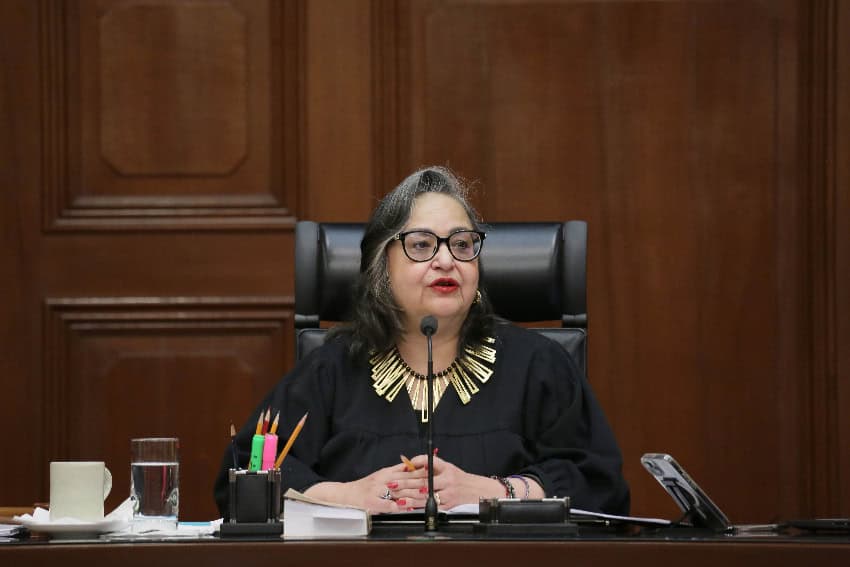
Piña’s proposal to reduce the number of votes required to approve González’s draft ruling to six was rejected by six justices. Six votes will only be considered a supermajority in the Supreme Court once the number of justices declines to nine following judicial elections next year.
González himself opposed Piña’s effort to set a lower threshold for the approval of his proposal, asserting that “the rules of the game” cannot be “established mid-play.”
His draft ruling sought not just to limit the election of judges to Supreme Court justices and electoral magistrates, but also to strike down a “faceless judges” provision that allows judges to remain anonymous when ruling on cases involving organized crime.
Given the Supreme Court’s rejection of the proposal, preparations for large-scale judicial elections to be held on June 1, 2025, can continue.
Almost 1,500 judges, including nine Supreme Court justices, are set to be elected next year from candidates put forward by the president, the Congress and the judiciary itself.
Only three of the 11 current justices — those considered aligned with the government — will contest the elections, while seven of the other eight will resign shortly after they are held. A second round of elections will be held in 2027.
The SCJN’s dismissal of González’s proposal also prevented a potential constitutional crisis, as the federal government had indicated that it wouldn’t comply with a ruling against the judicial reform.
President Claudia Sheinbaum and other federal officials maintained that the Supreme Court doesn’t have the authority to strike down a constitutional reform (or parts thereof) that has already been approved by Congress, ratified by a majority of state legislatures and promulgated by the president.
“The constitution is the maximum law,” Sheinbaum said last week.
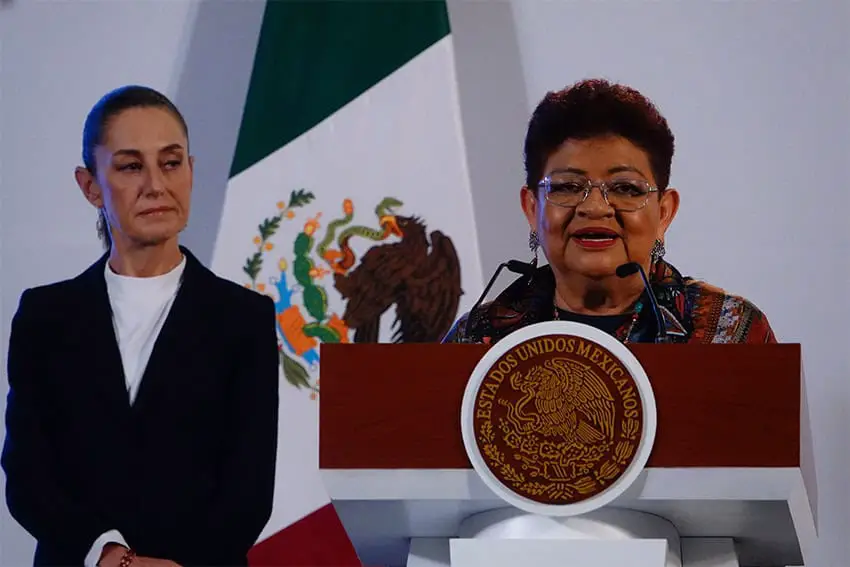
Last Thursday, she promulgated the so-called “constitutional supremacy” reform that prevents legal challenges against constitutional amendments. She could have used that reform to justify non-compliance with a Supreme Court ruling against the judicial reform.
Sheinbaum — who made her support for that reform clear before her landslide victory in the June 2 presidential election — argues that the election of judges is necessary to rid the judiciary of corruption and other ills such as nepotism.
Critics of the judicial reform argue that the election of judges will erode the independence of Mexico’s judiciary because it will come to be stacked with judges sympathetic to the ruling Morena party’s agenda, thus removing a vital check on executive power. Sheinbaum rejects the argument.
Reactions to the SCJN’s decision
Ernestina Godoy, Sheinbaum’s top legal advisor, acknowledged on social media that the Supreme Court rejected “the project of unconstitutionality against the reform to the judicial power.”
“It is now a reality. Judges, magistrates and Supreme Court justices will be elected by popular vote starting next year,” she wrote on X.
Godoy also said that the election of judges is “an advance for democracy, justice and the participation of the people.”
The judicial reform “will benefit all of us,” she added.
Ricardo Monreal, Morena’s leader in the lower house of Congress, described the Supreme Court’s rejection of González’s proposal, as “very important.”
“… Law prevailed, the Constitution prevailed, the moderation and wisdom of some of the justices prevailed,” he said.
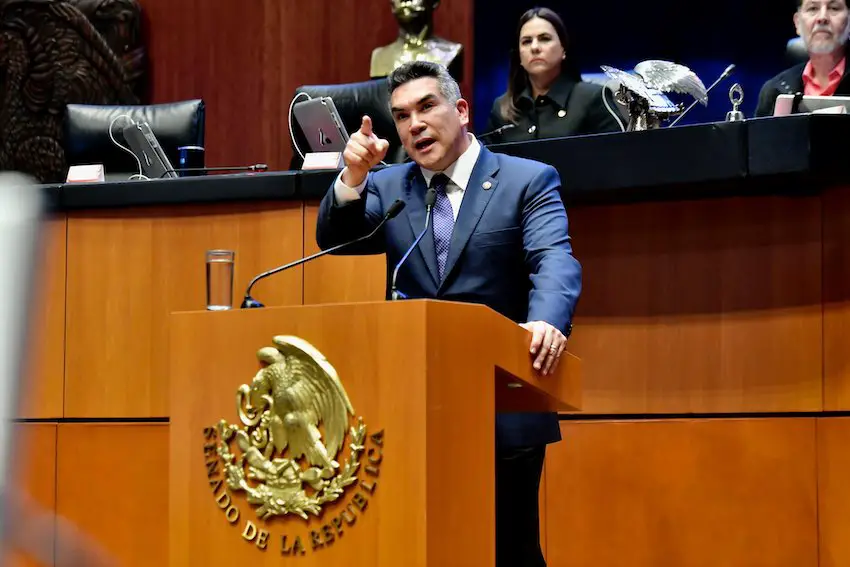
Senator Alejandro Moreno, national president of the Institutional Revolutionary Party (PRI), criticized Justice Pérez for what he called his “sudden change of position.”
In a post to X, he called the justice a “coward” and a “traitor to the people of Mexico.”
Pérez “threw his name into the dustbin of history,” Moreno added.
The PRI leader also took aim at Morena, accusing it of attempting to eliminate “counterweights” and the “opposition.”
PRI lawmakers “will continue demanding, by all means, more democracy, more justice and more freedom,” he wrote.
Senator Marko Cortés, president of the National Action Party, said on X that he “deeply” regretted the decision taken by the Supreme Court.
The court’s decision “threatens our democracy,” he wrote.
“We will not stop defending the division of powers, we will continue fighting for justice and equity,” Cortés added.
With reports from Aristegui Noticias, El Financiero, El Universal, La Jornada and El País
